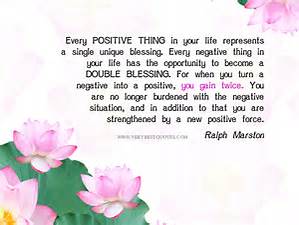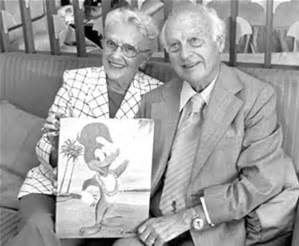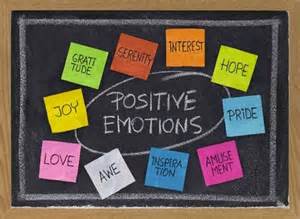
Have you ever watched something happen to someone and thought, “Wow! I’m glad that wasn’t me. Wonder what she or he did?” I have thought that countless times over the years (and I must admit that judgmental thoughts do enter my mind when I see certain things going on). Well, about a month ago, I got to be the one others looked saying “Wonder what she did?”

After exiting the body scanner at the Pittsburgh International Airport a female TSA (Transportation Security Administration) representative approached me and said, “We have to pat you down.” I thought “seriously” but I did not utter those words. She showed me the image of the body scan in which several areas of my body were glowing yellow, indicating potential trouble spots. She asked if I wanted IT done right there or in a private room. I chose right there (where everyone had a “front seat” at what was going on). Well, I am sure the other travelers going through the screening process where thinking “I am glad that isn’t me.” Or, “Oooh, what did she do? Or, “I hope I am not on her flight!” Or, “What is she hiding?”

I share this with you because when we watch someone going through something we start being judgmental without knowing the full story or all the facts. American poet Walt Whitman said, “Be curious, not judgmental.” This is sage advice for guiding actions toward ourselves, toward others, and toward things that happen to us on our life journey (especially unwanted or unexpected change). This week, I would like to explore the concept of how curiosity vs judgmentalism is better for us when dealing with life situations.

Let’s start with judgmentalism. When we are judgmental, we operate from a reactive frame of mind. We tend to be critical of and look for fault in situations, ideas, or people and we tend to use labels with negative connotations, such as bad, stupid, flawed. Jumping to conclusions and making assumptions is common. I feel for many, being judgmental is our default mode when something happens. Think about it. We see a child throwing a tantrum and public and begin, among other things, assessing parenting skills. We see someone on a street corner holding a sign asking for money and begin, among other things, criticizing a lack of work ethic. We experience an unwanted or unexpected change and begin, among other things, talking about why it is unfair and won’t work. When we are judgmental, we are overly critical in an unhelpful way.

How about when we are curious? Curiosity is when we are eager to know or learn something; when we are inquisitive. When we are curious, we operate from a more optimistic frame of mind. We are more open minded, objective, and resist jumping to conclusions or making assumptions. Curious people are more likely to look to understand a situation before passing judgment. They are more tolerant of ambiguity and uncertainty. Rather than seeing the fault in situations, they focus on getting to the root cause of issues and then attempt to deal with the situation creatively and innovatively.

 Writer, author, and photographer Doe Zantamata tells us that when we are judgmental, we separate but when we approach things with understanding (and I would add curiosity), we grow. So, what can we do to move ourselves from being judgmental to being curious? We can:
Writer, author, and photographer Doe Zantamata tells us that when we are judgmental, we separate but when we approach things with understanding (and I would add curiosity), we grow. So, what can we do to move ourselves from being judgmental to being curious? We can:
Practice mindfulness. Mindfulness is the intentionally-focused awareness of one’s immediate experience; it is being grounded in the present moment. When we focus on the present moment, we become more aware of what is going on around us. When we aren’t being present, we can become a victim to being judgmental. The more we can focus on the here and now, the present moment, the more likely we are to counteract judgmentalism.

Be self-aware of our reactions to situations. We need to take notice when we our thoughts are more critical and negative or when we let our feelings and emotions guide our responses to things. Then we need to ask why did we go their first? When we can recognize our judgmental actions and understand where they are coming from, we are better positioned to shift our responses to more positive (curious) ones.

Look beyond “the tip of the iceberg.” When we see something, hear something, or have something unexpected or unwanted happen to us, we often have such an immediate reaction that we fail to see or try to discover the full picture. Situations are complex. We don’t always know what led to them. My Pittsburgh, PA, USA friend, Sydnee Bagovich, recently posted on Facebook, “…and every day I am reminded, and the message is strengthened: things are not always as they seem. In fact, things are very often quite different from how they seem. Be kind. Be patient. Be understanding. Be loving, people. We often have no idea what those around us are experiencing, just as they likely have no idea about us.” Sydnee is right and in addition to her advice, we must first seek to understand before jumping to conclusions.

Watch our word choice. The language (whether spoken or thought) we use reveals much about whether we are acting or thinking from a perspective of judgmentalism or one of curiosity. The more negative, critical, or scornful, the more we are judging. The more positive, respectful, supportive, and understanding we are, the more we are operating from a perspective of curiosity.

Be more self-confident. We often become judgmental because it makes us feel better about ourselves. However, when we believe in ourselves and are solid with who we are, we don’t need to make judgments about others to elevate our self-esteem.

Someone said, “Before you assume, learn. Before you judge, understand. Before you hurt, feel. Before you say, think.” Assuming, judging, and hurting are characteristic of judgmental behavior. Learning, understanding, and feeling are characteristic of curiosity. If we can be curious and not judgmental, how much better our lives will be as well as the lives of those we encounter. If we can respect what is happening to us and to those we meet on our life journey, what a difference we can make for everyone. We need to start with ourselves. Begin practicing being more curious in the coming week and less judgmental. In doing so, we will be focusing on the things that really matter.






















